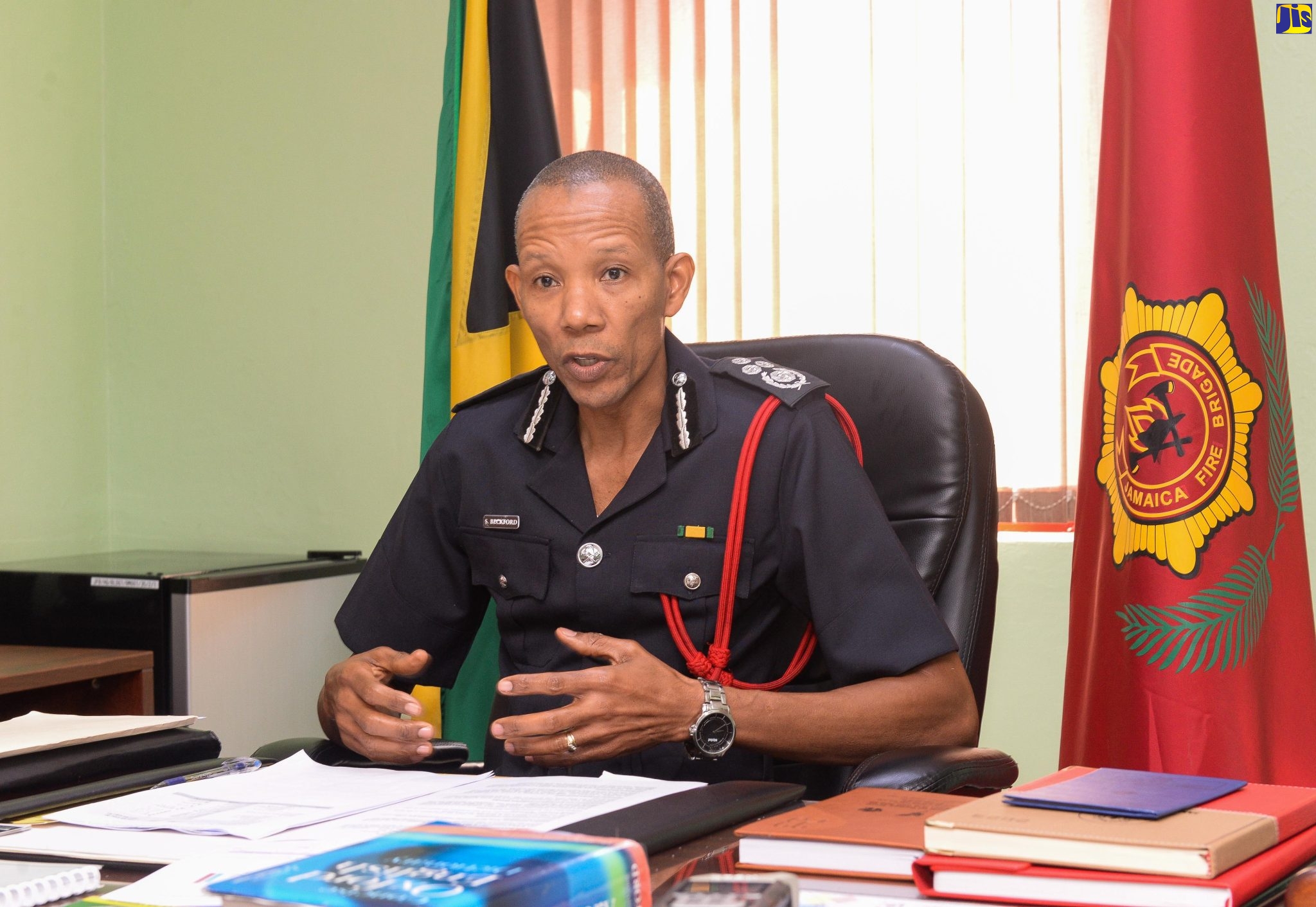JFB Urges Public to Desist from Making Malicious False Alarm Calls
By: , March 20, 2023The Full Story
Imagine hurriedly responding to an emergency call, with a focus on getting to the location as quickly and safely as possible and, upon arrival, there is no emergency.
The men and women of the Jamaica Fire Brigade (JFB) know all too well about such situations.
In fact, in 2022 the JFB responded to 1,220 malicious false alarms, an increase of 46 or 3.9 per cent, when compared to the 1,174 they responded to the previous year.
A malicious false alarm is the deliberate reporting of an emergency, such as a fire, where none exists.
JFB Commissioner, Stewart Beckford, tells JIS News that calls of that nature have been a major concern for the Brigade for many years.
“Even though we have taken steps to address the issue of malicious false alarms, we continue to be plagued by those calls,” he says.
Commissioner Beckford points out that while there was an increase in 2022, there have been significant reductions in the last seven years, due mainly to the JFB’s public education campaign.
“What we have found over the last two or three years is that there is a fluctuation in the numbers,” he indicates.
The Commissioner encourages the public to desist from making such calls, as it has implications for the Brigade and its members.
“It does use up or eat up our resources. It put the lives of firefighters at risk because they are responding to a non-event,” he points out, adding that firefighters would not know that they are responding to an event that did not occur.
“We are responding, as we are trained to do under siren condition; and so the likelihood of accidents is that much greater,” he adds.
Mr. Beckford shares details of an “unfortunate incident” which occurred in Clarendon, while a team was returning from the scene of one such call.
“The fire unit was involved in an accident with a delivery truck… and significant damage was done to that delivery truck plus the fire unit, which… caused it to be out of service for an extended period of time,” he tells JIS News.
He further indicates that the JFB had to pay “a pretty penny” to have the fire truck repaired.
Commissioner Beckford also highlights that an uptick in the number of malicious false alarm calls is normally seen in the summer months when children are out of school.
“So, I want to encourage the adults to properly supervise the children, because I know sometimes when the kids are alone, we tend to get these [prank calls],” he says, adding that with the popularity of cellphones, it is now easier for them to make such calls.
Conversely, the Commissioner is happy that children know the emergency numbers. However, he wants them to utilise the numbers in the event there is “a real emergency”.
“We encourage that kind of education. Educate them in the whole business of safety… so if there is an issue, you can call the fire department… but not to call the fire department when there are no fires or emergencies to be dealt with,” he emphasises.
The JFB reports an increase in the number of emergency calls responded to in 2022, when compared to the previous year.
“Our overall responses totalled 16,696… an increase of 304 or two per cent,” Mr. Beckford informs.
Of the total number of calls received, 7,756 were genuine fire calls; 1,220 malicious false alarms; 1,079 motor-vehicle accidents; 4,431 emergency medical services and 1,694 special services, which included search and rescue and oil spills on the roadways.
Another 516 of the calls were related to fires that were put out before the arrival of the JFB.
The Fire Service in Jamaica was established in October 1871 with the formation of the Kingston Fire Brigade.
It was formed to satisfy the need for a trained and equipped Fire Service to be responsive to growth in housing, industrial and commercial developments in Kingston, following a spate of large fires which had ravaged sections of the city’s commercial districts.


